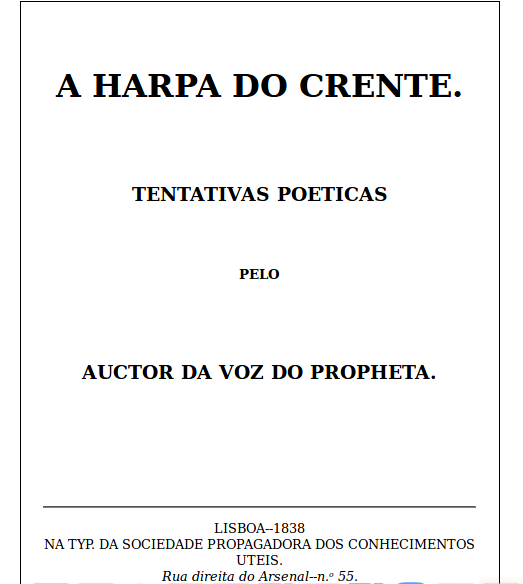The minstrel boy to the war is gone
In the ranks of death you'll find him.
His father's sword he has girded on
And his wild harp slung beside him.
'Land of song', cried the warrior bard,
'Though all the word betrays thee,
One sword at least thy right shall guard,
One faithful harp shall praise thee.'
The warrior bard believed in his country, and underlined his faith with a harp. Though distant in both time and space, Alexandre Herculano de Carvalho e Araújo, as Wikipedia recounts, was a nineteenth-century Portuguese novelist and historian. But in his youth he was a poet. He published over nearly half a century, novels, short stories, histories, theatre, many pamphlets... , but his first published work was a book of poems ‐ A Voz do Propheta. And his second book of verse set such store by this that the 1838 title page doesn't mention his name; I suppose the 21st-century equivalent would be
...by the best-selling author of
THE VOICE OF THE PROPHET
 | |||
Title page as reproduced in the Project Gutenberg edition | |
<inline-ps>I blithely used 'believed' in my opening sentence, expecting readers to know the relation between crente and 'believer'. Think of our words 'credentials' and 'credence'. I was fairly confident in assuming that harpa neeeded no glossing, but I shouldn't have assumed the same about crente.
</inline-ps>
 | ||||||||
| Amazon's helpful suggestion |
There may be play at Lord's now though, so...
b
Update: 2021.06.06.17:10 – Added <inline-ps />